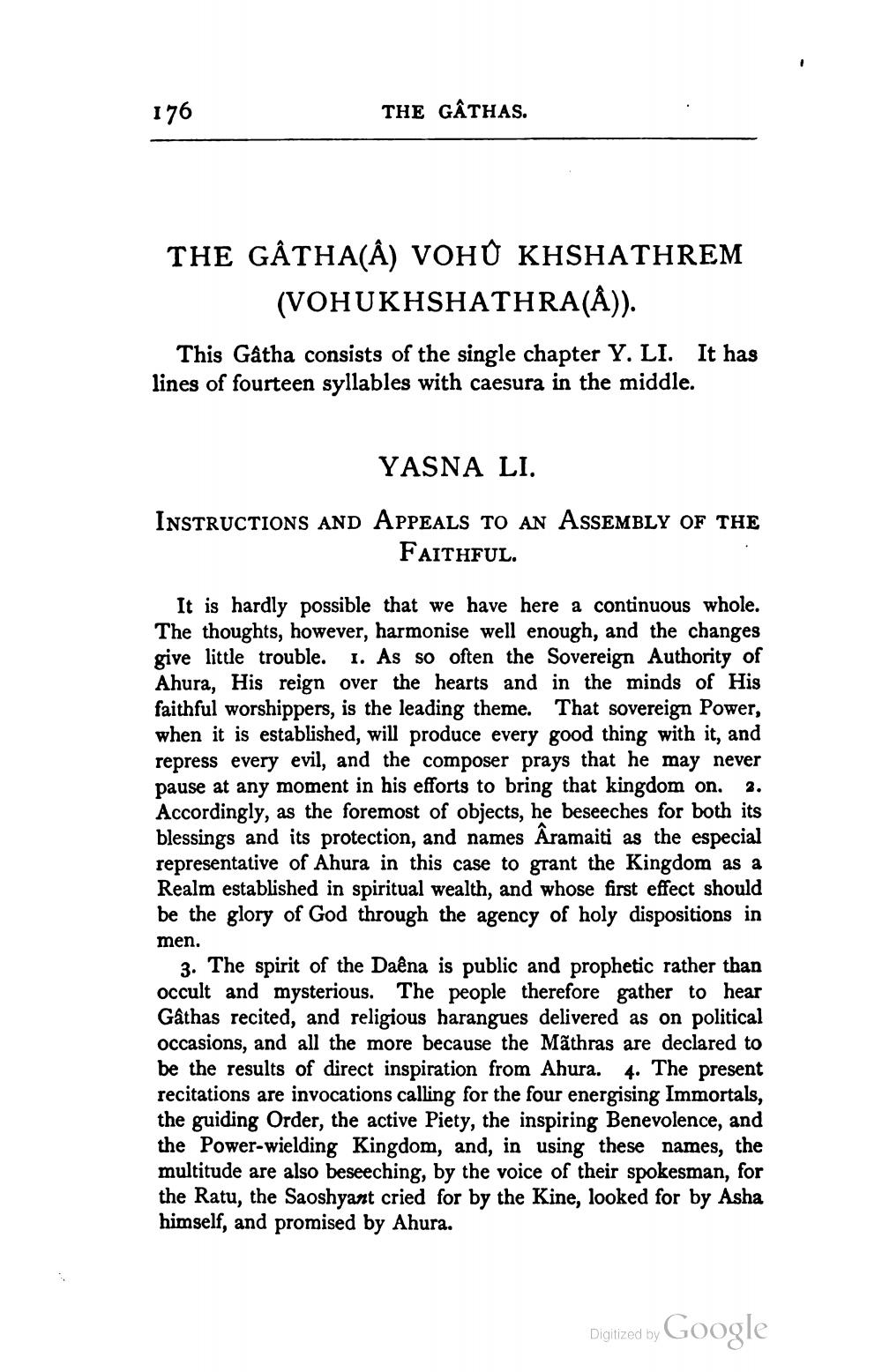________________
176
THE GÂTHAS.
THE GÂTHA(Â) VOHÙ KHSHATHREM
(VOHUKHSHATHRA(Å)). This Gatha consists of the single chapter Y. LI. It has lines of fourteen syllables with caesura in the middle.
YASNA LI.
INSTRUCTIONS AND APPEALS TO AN ASSEMBLY OF THE
FAITHFUL.
It is hardly possible that we have here a continuous whole. The thoughts, however, harmonise well enough, and the changes give little trouble. 1. As so often the Sovereign Authority of Ahura, His reign over the hearts and in the minds of His faithful worshippers, is the leading theme. That sovereign Power, when it is established, will produce every good thing with it, and repress every evil, and the composer prays that he may never pause at any moment in his efforts to bring that kingdom on. 2. Accordingly, as the foremost of objects, he beseeches for both its blessings and its protection, and names Aramaiti as the especial representative of Ahura in this case to grant the Kingdom as a Realm established in spiritual wealth, and whose first effect should be the glory of God through the agency of holy dispositions in men.
3. The spirit of the Daêna is public and prophetic rather than occult and mysterious. The people therefore gather to hear Gathas recited, and religious harangues delivered as on political occasions, and all the more because the Mãthras are declared to be the results of direct inspiration from Ahura. 4. The present recitations are invocations calling for the four energising Immortals, the guiding Order, the active Piety, the inspiring Benevolence, and the Power-wielding Kingdom, and, in using these names, the multitude are also beseeching, by the voice of their spokesman, for the Ratu, the Saoshyant cried for by the Kine, looked for by Asha himself, and promised by Ahura.
Digitized by
Digitized by Google




